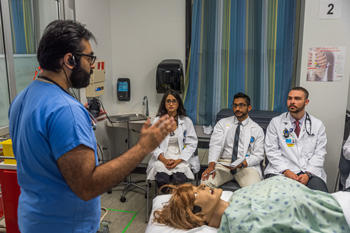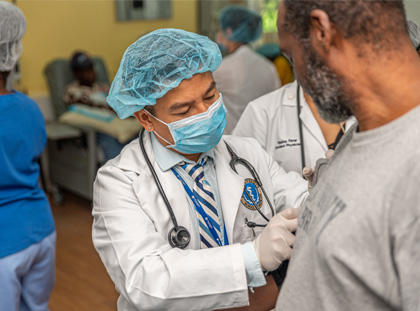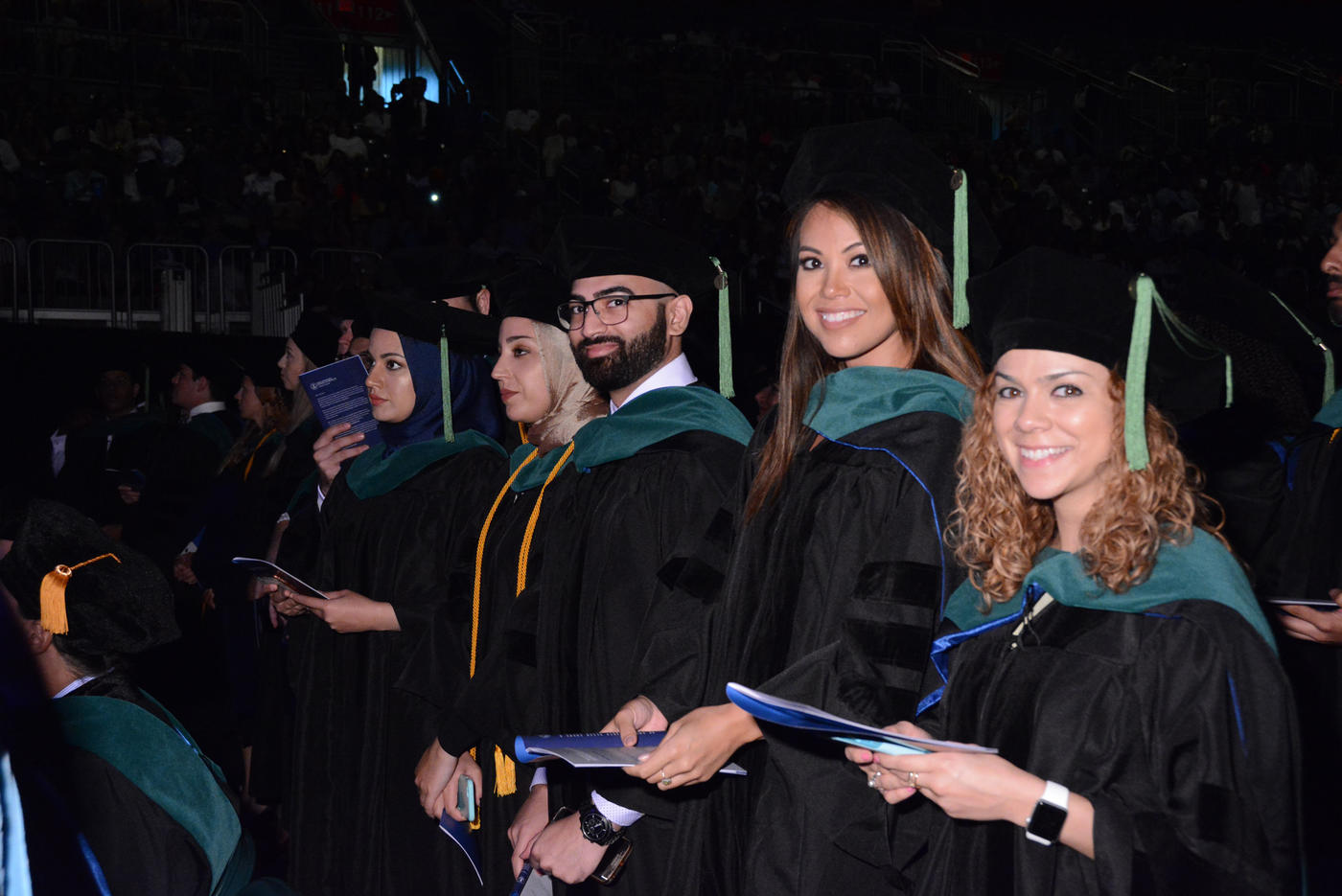Students interested in going to a Caribbean medical school should ask a lot of questions—and those questions need to be answered before deciding to apply. Students should know how Caribbean medical schools compare to schools in the United States and Canada. They should also know how Caribbean medical schools compare against one another.
Students need to know what the requirements are to get into certain Caribbean schools, and what expectations they may have to graduate. Students should know how Caribbean medical schools are accredited, and they should make sure their studies can lead to opportunities back in the United States or Canada. Most importantly, students should make sure that going to a Caribbean medical school can help them achieve the dream of becoming a physician.
How Are Caribbean Medical Schools Accredited?
The first thing prospective students should find out is if a Caribbean medical school is accredited—meaning the school meets the functional and structural standards for medical education in their region. They should also make sure that the accreditation meets the standards of the Liaison Committee on Medical Education (LCME), the accreditation authority for medical schools in the United States and Canada that provide Doctor of Medicine (MD) degrees.
Students of accredited Caribbean medical schools—such as the Ross University School of Medicine (RUSM)*—have the same privileges as students of medical schools in the United States and Canada. RUSM students may qualify for federal student loans through the U.S. Department of Education. RUSM students may register with the Educational Commission for Foreign Medical Graduates® (ECFMG®) to take the United States Medical Licensing Examination® (USMLE®). RUSM students may also move on to medical residencies accredited by the Accreditation Council for Graduate Medical Education (ACGME), the residency authority in the United States and Canada.
RUSM, located on the island of Barbados, is accredited by the Caribbean Accreditation Authority for Education in Medicine and other Health Professions (CAAM-HP). CAAM-HP is recognized by the U.S. National Committee on Foreign Medical Education and Accreditation (NCFMEA) as meeting LCME standards. CAAM-HP is also recognized by the World Federation for Medical Education (WFME), the international authority on medical school standards. CAAM-HP accredits more than a dozen medical schools among the member states of the Caribbean Community and in the Dominican Republic. It has accredited RUSM since 2009.
CAAM-HP is not the only medical school accreditation authority in the Caribbean Islands. The Accreditation Commission on Colleges of Medicine (ACCM), which is also recognized by the NCFMEA and the WFME, accredits eight other Caribbean medical schools. (To see if a particular Caribbean medical school’s accreditation authority meets U.S. and international standards, check the NCFMEA and WFME approval lists.)
What are the Admission Requirements for Caribbean Medical Schools?
All medical schools have basic requirements for students who want to gain entry. These requirements include a series of undergraduate premed classes and an undergraduate degree as well as a good grade point average (GPA) and a good score on the Medical College Admission Test (MCAT), a standardized, multiple-choice exam administered by the Association of American Medical Colleges (AAMC).
The test is required for students wanting to enter four-year medical schools such as RUSM. (RUSM has temporarily waived the MCAT requirement because of COVID-19-related limitations on test availability.) Students also need some medical and other work experience, letters of recommendation and personal statements, and they should speak English and be able to communicate well. Students must also pay application fees and meet deadlines. The average GPA and average MCAT score of matriculants best illustrate differences in United States medical school requirements and Caribbean medical school requirements.
In the United States in 2020, AAMC data show that students accepted to medical schools had a mean GPA of 3.73 (out of 4.0) and scored 511.5 on the MCAT. These are excellent marks, but such high standards exclude numerous exceptional students. Caribbean medical schools tend to take a holistic approach when it comes to admissions. This process considers an applicant as a whole person rather than a mere set of grades and scores.
What are the Application Deadlines for Caribbean Medical Schools?
In the United States, students usually apply to medical schools about a year before they hope to enter. A primary application may be sent in late summer, followed by a secondary application, an interview, and—if all goes well—acceptance. Accepted students must commit to a medical school by the end of April for classes that will begin in the autumn. If a student is not accepted to a medical school, or if the student misses the commitment deadline, the year-long application process must usually be repeated.
Caribbean medical school application deadlines differ slightly. For example, RUSM has rolling admissions that allow for applications and matriculations year-round—but there are still deadlines. At RUSM, class terms begin three times per year: in January, May, and September. Students must apply and be accepted a minimum of six weeks before the start of the semester in which they wish to enroll. The flexibility of multiple starting times, however, means students need not wait very long if they miss a particular deadline.
What is the Rate of Acceptance at Caribbean Medical Schools?
Many students choose Caribbean medical schools because they offer opportunities to study medicine to a larger percentage of applicants. They also tend to have a more holistic approach to admissions.
Holistic admission considers an applicant as a whole person rather than a mere set of grades and scores. This approach considers a student’s adaptability, critical judgment, intellectual and social maturity, life experiences, and volunteer work, as well as graduate school performance when applicable.
How Do Caribbean Students Perform on the USMLE Step 1?
At the end of the first two years of medical school, students take the United States Medical License Examinations (USMLE) Step 1, also known as “The Boards”—the first official test of the medical licensure process. A medical school may measure its success by the success of its students on this first USMLE exam (there are two later tests before licensure), and RUSM students do well. In 2019, 96.7 percent of RUSM students passed the initial step of the USMLE on the first attempt.
What is the Match Rate (Residency Placement Percentage)?
In the fourth and final year of Caribbean, U.S., and Canadian medical schools, students apply to residencies and go to residency interviews. Students then create a “rank-order list” of preferred residency programs which is matched against a similar list created by the programs. In late March—on “match day”—students find out if they have been matched with an ACGME-accredited residency program to fill post-graduate training positions.
At RUSM, the percentage of first-time, most recent year (2020-2021) students and graduates who attained a residency is known as the “match rate” or “residency attainment rate”. U.S. and Caribbean medical school match rates are an important statistic to be aware of when searching for an MD program.
RUSM has a strong history of graduating students earning internal medicine or specialty residencies. As of May 14, 2021, 91 percent of RUSM graduates earned residencies throughout the United States.
So Which Caribbean Medical School is Best?
The quality of an accredited Caribbean medical school is shown by the success of its students, as well as its performance similarities to U.S. medical schools. RUSM students do very well on the USMLE Step 1, surpassing the pass rate of U.S. students. They also have a high chance of obtaining a spot in a residency program, as shown by RUSM’s 91% residency attainment rate.
The Ross University School of Medicine combines medical science, clinical training, and soft skills support in a state-of-the-art educational environment that keeps learning relevant, contemporary, and competitive. Take the next step toward becoming a physician: apply for admission to RUSM.
Related resources:
*Ross University School of Medicine is accredited by the Caribbean Accreditation Authority for Education in Medicine and other Health Professions (CAAM-HP, www.caam-hp.org).
CAAM-HP is the legally constituted body established in 2003 under the aegis of the Caribbean Community (CARICOM), empowered to determine and prescribe standards and to accredit programs of medical, dental, veterinary and other health professions education on behalf of the contracting parties in CARICOM.
Accreditation by CAAM-HP is a rigorous, peer review process which examines all aspects of a medical program. The CAAM-HP board, an independent and autonomous body of professionals, only certifies medical schools which are operating at the highest levels of industry standards.
Through this accreditation, the CAAM-HP provides assurance to medical students, graduates, the medical profession, healthcare institutions and the public that programs leading to qualifications in medicine meet appropriate national and international standards for educational quality, and that the graduates have a sufficiently complete and valid educational experience.




